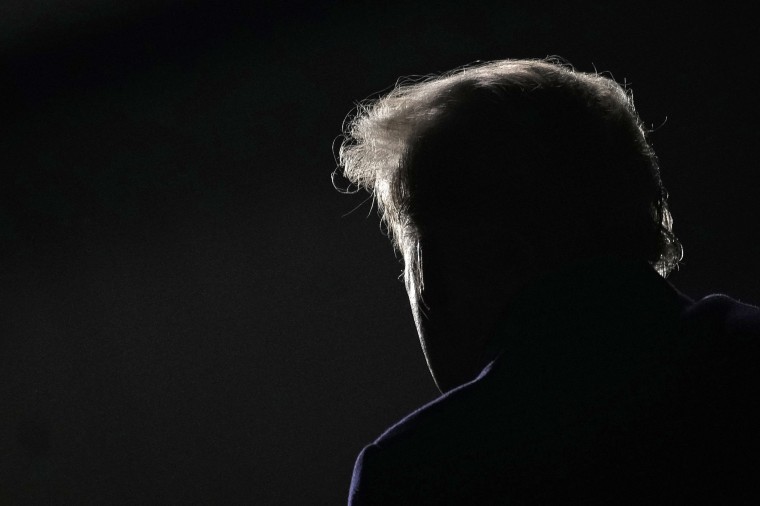There was a great deal wrong with Donald Trump’s 2016 candidacy, but among the most conspicuous problems was the Republican’s deliberate decision to avoid any focus on governing and policy details. Most candidates at least pretend to care about presenting voters with a substantive vision, but Team Trump practically flaunted its indifference.
One of the future president’s top policy advisers said at the time that voters would be “bored to tears” if the GOP campaign focused on governing. Trump himself insisted “the public doesn’t care” about public policy, which came on the heels of a campaign insider saying Trump didn’t want to “waste time on policy.”
As MSNBC’s Chris Hayes summarized in September 2016, the prospect of a Trump presidency was, for all intents and purposes, a “black box.” The host added, “No one, probably not even Trump, knows what the hell it looks like.”
Four years later, the then-incumbent president was no better. Trump was repeatedly asked, even on conservative media, about his policy priorities for a second term, and in each instance, he bungled the question. At one point, when the issue came up during a Fox News interview, the Republican boasted that he “would do new things” in a second term — but he failed to identify what any of those “new things” might be.
Eventually, Team Trump released a 50-point bulleted list of post-election priorities, but as we discussed soon after, to call the list an agenda would be far too generous: It included goals such as “return to normal in 2021.” The items on the list hardly counted as half-written tweets, much less elements of a presidential governing agenda.
As Election Day neared, Joe Biden’s campaign website featured relatively detailed proposals on 46 policy areas. As I noted in my book, Trump’s website featured literally zero policy plans and didn’t bother with an issues page.
The good news is, as part of his 2024 candidacy, the Republican has some relatively specific ideas about what he’d do with power if voters return him to the White House, and the electorate will have ample opportunity to assess them on the merits. The bad news is, those ideas are fundamentally at odds with how the United States government is supposed to function.
I’m not talking about the direct-to-camera videos featuring weird campaign promises that Trump periodically releases. The clips videos have all the sophistication of bumper stickers written in crayon.
Rather, I’m referring to the revelations from this New York Times report, published earlier this week, sketching out the details of something called Project 2025: the Republican’s plan for “a sweeping expansion of presidential power” that would concentrate authority “directly in his hands.”
[Trump and his associates intend] to alter the balance of power by increasing the president’s authority over every part of the federal government that now operates, by either law or tradition, with any measure of independence from political interference by the White House, according to a review of his campaign policy proposals and interviews with people close to him.
The vision is, among other things, ambitious.
- Federal agencies that currently work independently would be controlled by Trump.
- Congressionally approved government spending simply would not happen, at Trump’s discretion, as his prospective administration makes plan to renew “impounding” practices.
- Exploiting something called Schedule F, tens of thousands of career civil servants would be stripped of their civil employment protections.
- Similarly, a hunt would begin within intelligence, diplomatic, and national security agencies, looking for employees Team Trump deemed ideologically unfit for public service.
Or put another way, the frontrunner for the GOP nomination finally has a post-election plan. It’s called a radical and authoritarian-style power grab. Historian Ruth Ben-Ghiat explained in an MSNBC column this week that Trump’s vision “would make the United States similar to authoritarian systems in which the executive branch wields outsized power with respect to the judiciary and legislature.”
What’s more, before the former president’s supporters suggest that the Times’ report is some kind of exaggeration, there’s ample evidence to the contrary. As Dan Drezner, a professor of international politics at Tufts, noted, “It will be difficult for the Trump campaign to claim inaccuracies in the story, since the [article] quotes liberally from Trump loyalists like John McEntee, Russell Vought, Steven Cheung, and Heritage Foundation president Kevin Roberts.”
What we’re left with is a leading presidential contender, who sought national office twice without anything resembling a governing platform, settling on a post-election plan — which is fundamentally at odds with his own country’s democracy.

